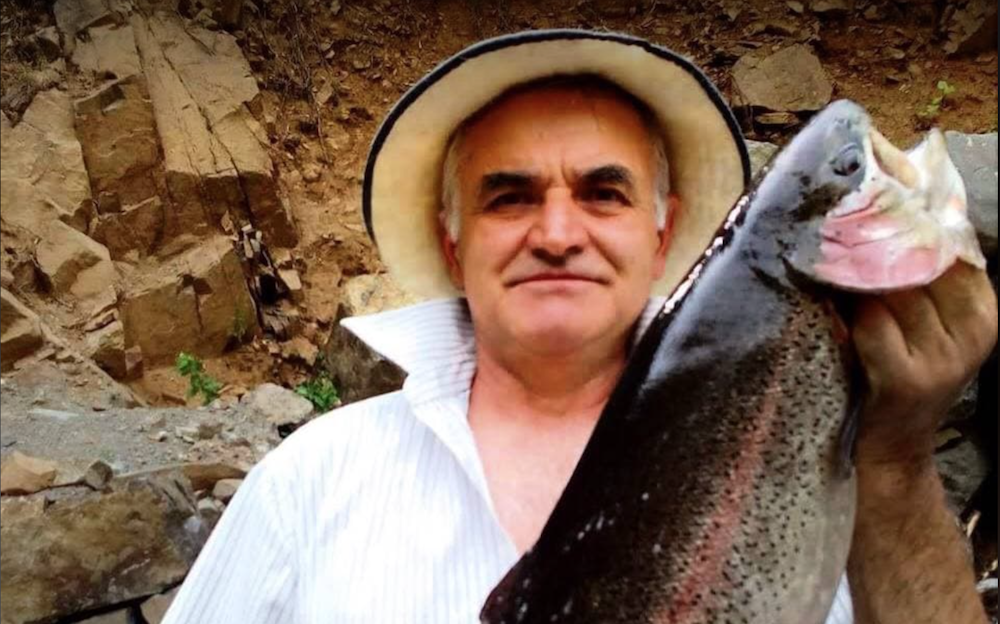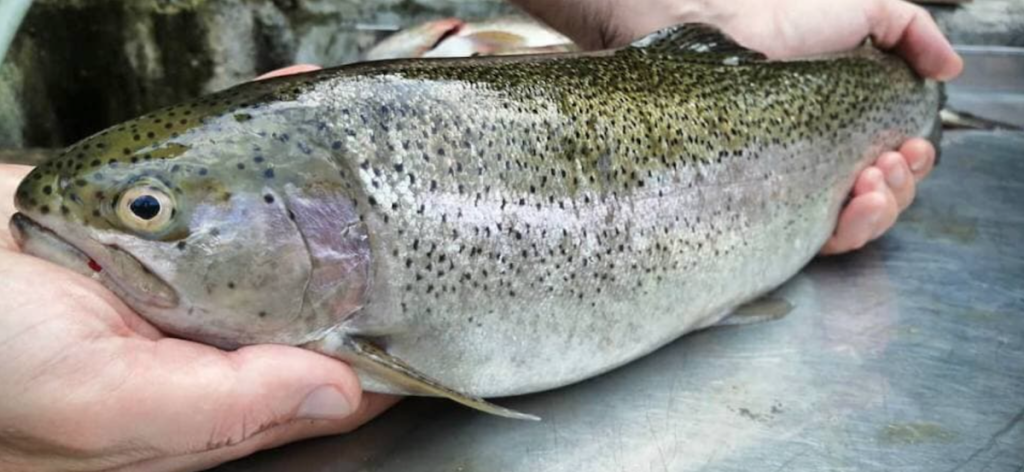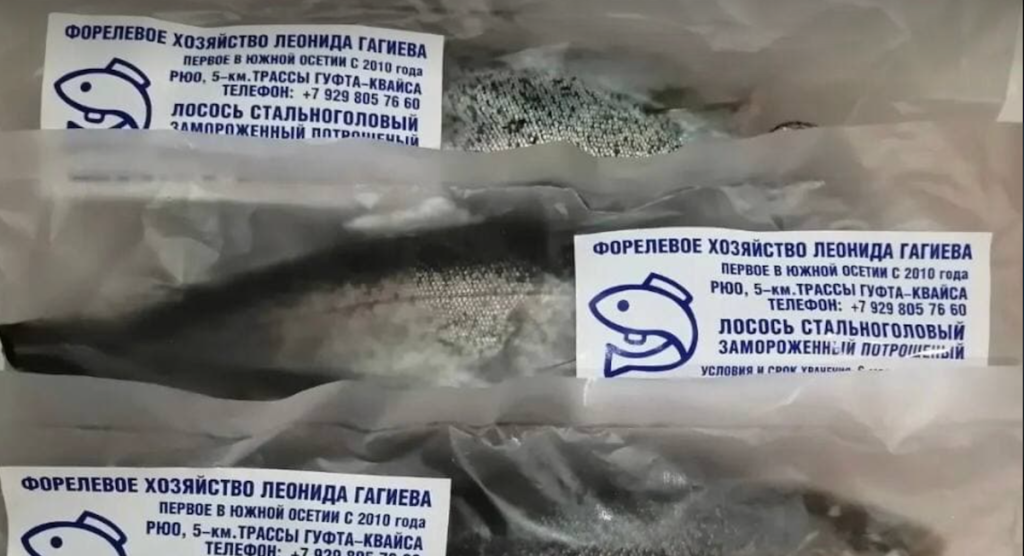Trout farmer shares his experience of keeping small business afloat in S.Ossetia
Small business in South Ossetia
Small and medium businesses in South Ossetia are going through difficult times, as the outbreak of the global Covid-19 pandemic has seriously damaged their activities. On top of that, decreasing demand and problems with transportation along the Russian-South Ossetian border leaves little cause for optimism. Leonid Gagiev owns a fishery, and the problems caused by the pandemic have affected his business as well. However, he does not lose optimism and makes new plans for the future.
Gagiev’s farm “Southern Gates” is located in the mountains, on the way from Tskhinval to the city of Kvaisa. He breeds salmon and trout. The coronavirus pandemic has hit his business hard.
Both essential products and almost everything necessary for business are imported to South Ossetia from Russia.
- South Ossetia – political crisis over border demarcation
- Residents of South Armenia hope for tourism renaissance in the aftermath of second Karabakh war
Having bought 300 kilograms of breeding stock in North Ossetia – that is, fish intended for breeding, Gagiev went home to South Ossetia as usual. But customs at the border closed due to pandemic restrictions.
“I got stuck at customs, the fish did not have enough oxygen and suffocated. I paid 1,200 rubles [about $15.5] per kilogram. Now you count losses that I have suffered.
In total, there are five fish farms in South Ossetia, they are located in Leningor, Kvais and Tskhinvali regions.
“They are all experiencing problems – both because of the pandemic and transportation costs. Our turnover is small, the cost is higher than in North Ossetia. If large farms are not built, the industry will decline”, says the entrepreneur.

According to him, it also requires a fair amount of food for fish. The fry are fed with special fishmeal.
“It’s organic. They usually bring it from the Far East. But I prefer imported food. Its output of marketable products is higher than that of the Russian one. North Ossetian farmers buy it in large volumes from distributors in St. Petersburg, and I buy it from them”.
Since Leonid’s volumes are small, a kilogram of feed costs him more than 200 rubles [about $2.6].
“Before, the guys from Leningrad [the area where ethnic Georgians live is called Akhalgori in Georgia – JAMnews] guys bought me the same food in Georgia, European, and brought it straight to me in a barrel. But after the road was closed, these deliveries stopped”.
Residents and guests of South Ossetia know Gagiev farm, his products are in demand. However, sales have dropped significantly in recent years.
“Purchasing power (of the population) has decreased, trade turnover has fallen by almost 10%”, says Leonid.
Farm needs investments
The fish farm, which Gagiev created from scratch, needs investments – money is needed to expand the business. However, he failed to get a loan from local banks.
The farmer explains that the fish breeding cycle should not be interrupted. According to Gagiev, “we need to feed the fry, we need new pools. But if one [ of those things] is missing, then so does the other.
“I am trying to get a loan from the National Bank. The market price of my farm, according to my estimates, is 12 million rubles [about $160,000]. I want to get a loan of five million [about $66,700] — I need money for development. They only agree to give me three million rubles [about $40,000], but this money is not enough. I need five”.
The National Bank refuses to evaluate Gagiev’s farm, citing the fact that if he fails to repay the loan, the bank is not sure that it will be able to sell Gagiev’s business and recover the probable losses. Gagiev himself categorically disagrees with this position:
“I explain to them that I am taking out a loan not to go bankrupt, but, on the contrary, to expand the economy and earn money. I have applied to all the presidents, but I got no replies”.

Back in 2010, Gagiev applied to the government and presented his business plan.
“Then I was told that only 10 million rubles [about $133,300] were allocated in the budget for the development of private businesses, and there would not be enough money for all applicants. They offered to wait until next year and promised to support me, saying that the budget would be more than 100 million [about $1.3 million]. But in the end, I agreed and received a loan of 600,000 rubles [about $8,000]. At the same time, I was promised a loan of eight million rubles [about $106.6 thousand] for the next year in 2011”.
But the next year, Gagiev did not receive this money.
Soft loans that the government gives to local businessmen have also been denied for three years in a row. The Cabinet of Ministers issues this money at 5% per annum through Sberbank. But the farmer failed to get a loan of five million rubles.
“They refer to a certain decree, according to which, without paying off the old loan, a new one cannot be obtained. I explain to them that I expect to receive a loan of eight million promised back in 2010, and I will pay off old debts anyway, but without new financial injections, the business will wither. It is hard to come to an agreement. No one wants to provide them, despite the fact that I have breathed new life into this area. There was nothing here”, complains Gagiev.
What happened?
Even before the COVID-19 pandemic, the businessman shared his plans with us – he dreamed of opening a small fish restaurant. Despite the difficulties, Leonid Gagiev partially managed to achieve this goal:
“Of the positive events over the past three years, I would like to note the opening of a hall for 30 seats. The idea is that those who wish can taste the fish that I grow on my farm, they can come, choose the fish they like and cook it themselves and then sit in the hall, taste it. The room has everything you need for this. I provide a brazier, disposable dishes, inventory … You can enjoy yourselves.

Despite the difficulties, Gagiev does not lose enthusiasm. Now he is studying the market, negotiating with implementers, evaluating the prospects.
“I have already talked to the store owners. I offer deliveries of gutted peeled fish in vacuum packaging. I ask for 700 rubles [about $9] per kilo.”
Leonid Gagiev is an optimist, despite all the difficulties. By his example, he proves that small business in South Ossetia can survive despite all the hardships.
Terms, place names, opinions and publication ideas do not necessarily coincide with those of JAMnews or its individual employees. JAMnews reserves the right to remove comments on posts that are deemed offensive, threatening, violent or otherwise ethically unacceptable.


















